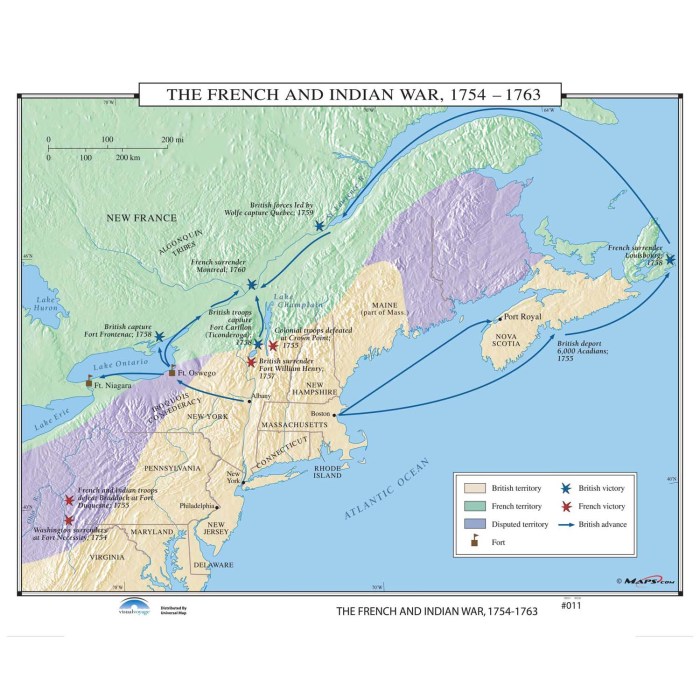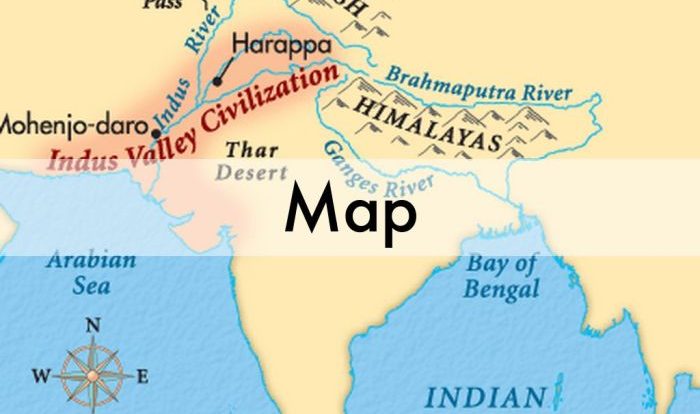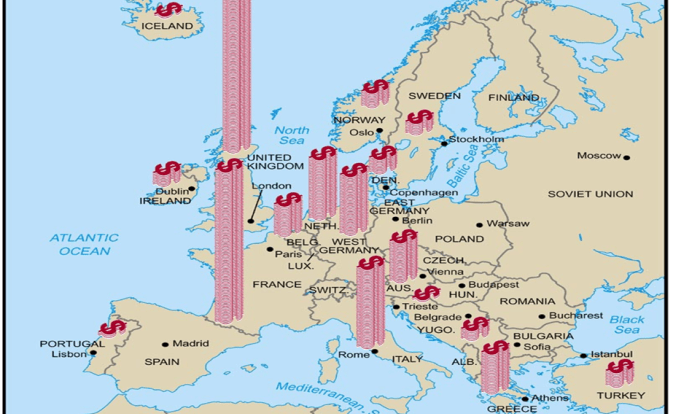Embark on an educational journey with our French and Indian War Webquest Answer Key, a comprehensive guide that unravels the intricacies of this pivotal conflict. Immerse yourself in the causes, battles, and legacy of a war that shaped the destiny of North America.
This resource provides an in-depth exploration of the war’s origins, timeline, and impact on Native American tribes. Dive into the strategies and significance of key battles, including Fort Necessity and Quebec, and trace the path to the Treaty of Paris (1763).
Overview of the French and Indian War
The French and Indian War (1754-1763) was a major conflict between the British Empire and the French Empire for control of North America. The war began as a result of competing claims to land in the Ohio Valley and spread to other parts of North America and Europe.
Timeline of Major Events
- 1754: Outbreak of the war at Fort Necessity
- 1755: Braddock’s Defeat and the capture of Fort Duquesne
- 1758: Capture of Louisbourg and Fort Frontenac
- 1759: Battle of the Plains of Abraham and the capture of Quebec
- 1760: Fall of Montreal
- 1763: Treaty of Paris ends the war
Impact on Native American Tribes
The French and Indian War had a devastating impact on Native American tribes in North America. Many tribes were forced to take sides in the conflict, and their traditional lands were often used as battlegrounds. The war also led to a decline in the population of Native Americans, due to disease, warfare, and displacement.
Key Battles and Campaigns
Battle of Fort Necessity
The Battle of Fort Necessity was the first major battle of the French and Indian War. It was fought on July 3, 1754, near present-day Uniontown, Pennsylvania. The British, led by George Washington, were defeated by the French and their Native American allies.
The battle marked the beginning of the war and showed the British that they were not prepared for the conflict.
Battle of the Monongahela
The Battle of the Monongahela was a major defeat for the British during the French and Indian War. It was fought on July 9, 1755, near present-day Pittsburgh, Pennsylvania. The British, led by General Edward Braddock, were ambushed by the French and their Native American allies.
Braddock was killed in the battle, and the British were forced to retreat.
Battle of Quebec
The Battle of Quebec was a decisive victory for the British during the French and Indian War. It was fought on September 13, 1759, on the Plains of Abraham outside Quebec City. The British, led by General James Wolfe, defeated the French, led by General Louis-Joseph de Montcalm.
Both Wolfe and Montcalm were killed in the battle. The victory gave the British control of Quebec and marked a turning point in the war.
Treaty of Paris (1763): French And Indian War Webquest Answer Key

The Treaty of Paris was signed on February 10, 1763, ending the French and Indian War. The treaty gave Great Britain control of all French territory in North America east of the Mississippi River. Spain gained control of French territory west of the Mississippi River, and France regained control of its Caribbean colonies.
Impact on the British Empire
The Treaty of Paris had a significant impact on the British Empire. The treaty gave Great Britain control of a vast new territory in North America, which increased the empire’s power and prestige. The treaty also led to a period of economic growth in Great Britain, as the new territory provided new markets for British goods.
Significance for Native American Tribes
The Treaty of Paris had a devastating impact on Native American tribes in North America. The treaty ignored the claims of Native American tribes to the land that had been ceded to Great Britain and Spain. This led to a series of wars between Native American tribes and the British, which continued for many years after the war.
Key Provisions
| Provision | Description |
|---|---|
| Great Britain gained control of all French territory in North America east of the Mississippi River | This included Canada, the Ohio Valley, and Florida |
| Spain gained control of French territory west of the Mississippi River | This included the Louisiana Territory |
| France regained control of its Caribbean colonies | This included Guadeloupe and Martinique |
Legacy of the French and Indian War
American Revolution
The French and Indian War had a major impact on the American Revolution. The war showed the British that they could not easily control their colonies in North America. The war also led to a decline in the popularity of the British government in the colonies.
These factors contributed to the outbreak of the American Revolution in 1775.
Development of the United States
The French and Indian War also had a significant impact on the development of the United States. The war led to the expansion of the British Empire in North America, which increased the number of colonists in the colonies. The war also led to the development of a new sense of American identity, as the colonists began to see themselves as distinct from the British.
Timeline of Events Leading to the American Revolution, French and indian war webquest answer key
- 1763: Treaty of Paris ends the French and Indian War
- 1765: Stamp Act is passed
- 1770: Boston Massacre
- 1773: Boston Tea Party
- 1775: Outbreak of the American Revolution
Common Queries
What were the primary causes of the French and Indian War?
Competing claims to land in North America between Britain and France, as well as tensions over trade and alliances with Native American tribes.
Who were the major participants in the war?
Great Britain, France, and their respective Native American allies.
What was the significance of the Treaty of Paris (1763)?
Ended the war, ceded French territories in North America to Britain, and established new boundaries that shaped the future of the continent.

